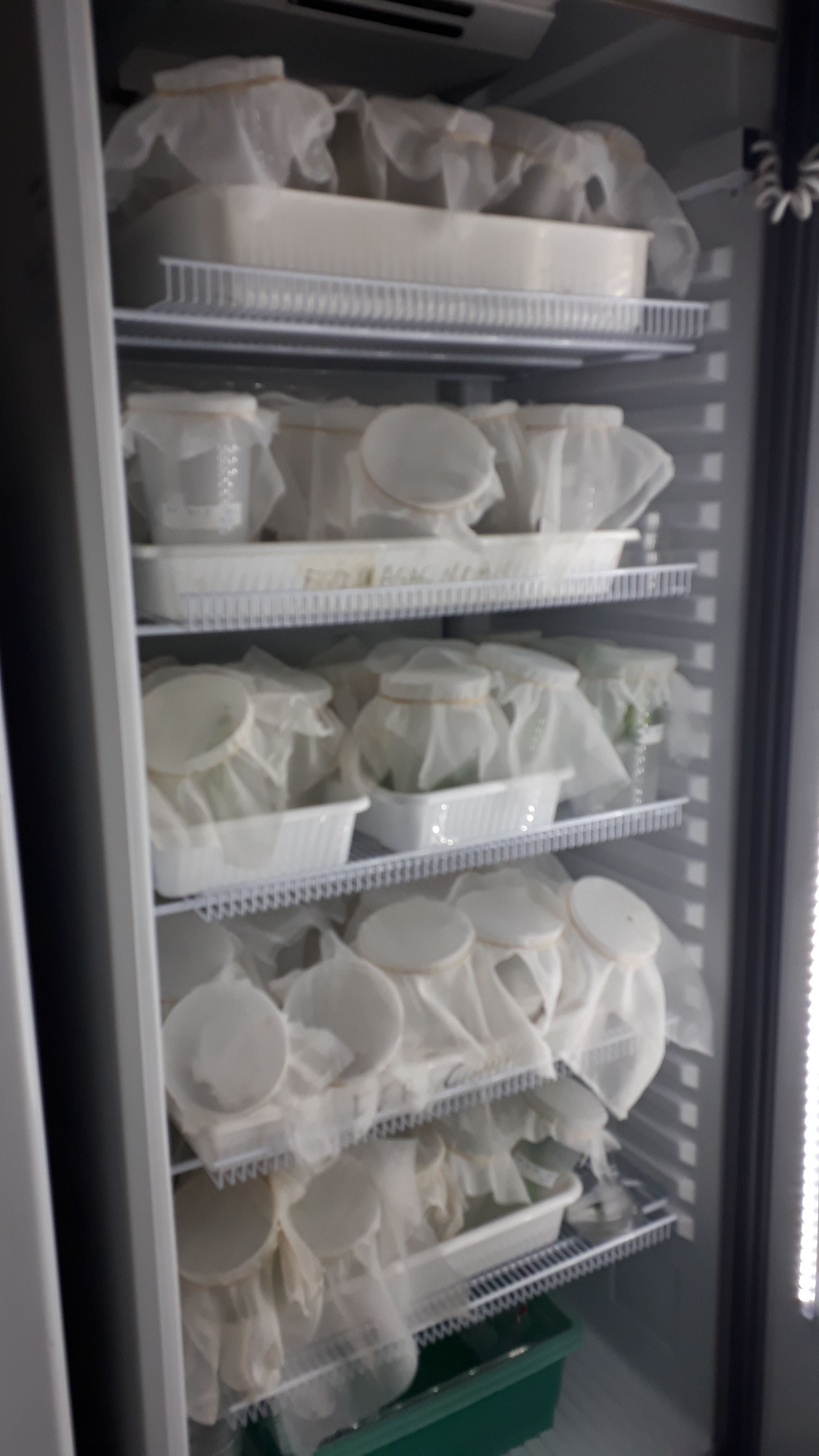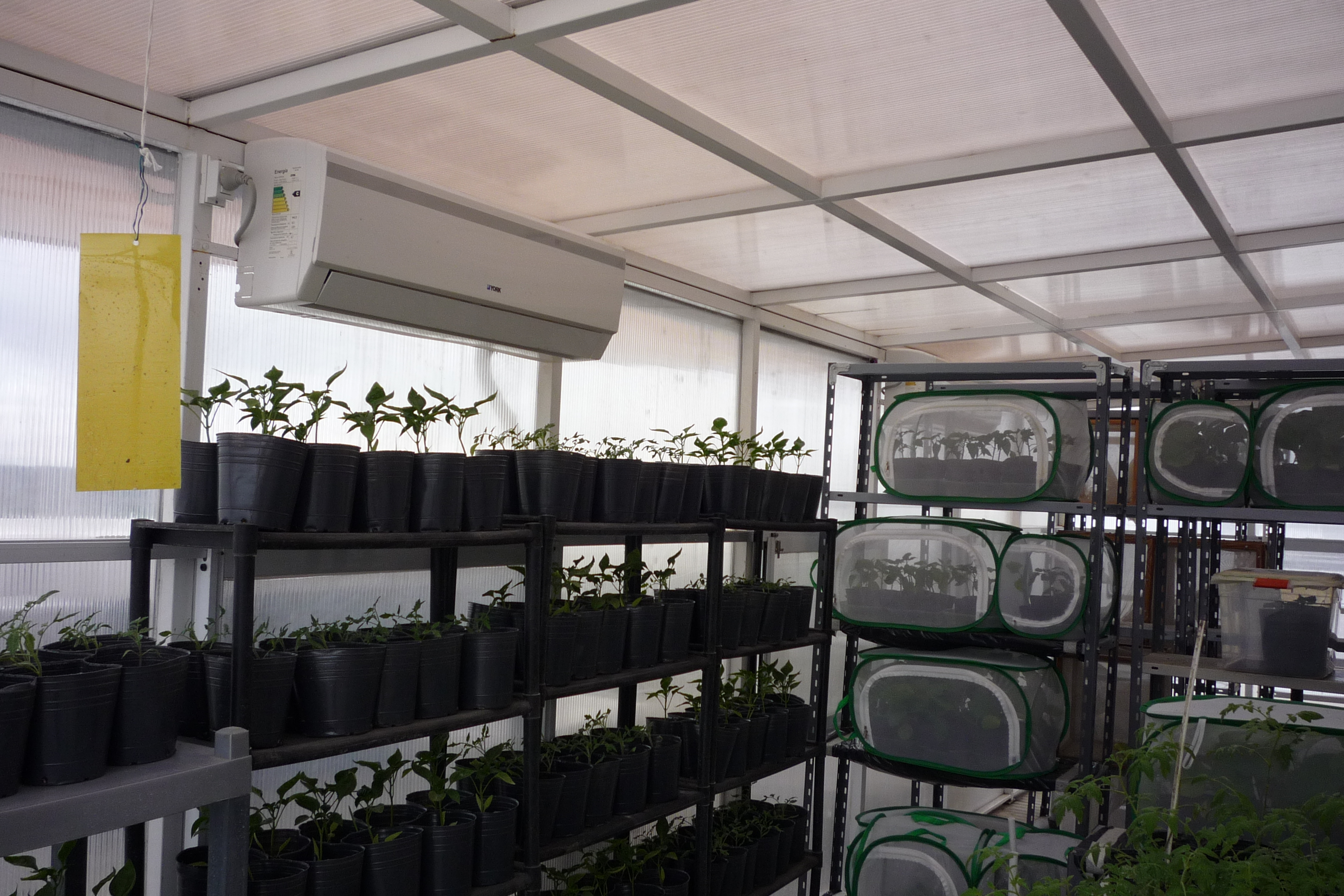Methods
Summary
The working hypotheses of the experiment proposed here is that the action of P. dignus on T. absoluta populations will control the pest. Besides, tomato yield and fruit quality will be significantly improved by applying this biocontrol technique.
In an experimental tomato greenhouse (400 m2), we will analyze the effect of one releasing event of female wasps, at a density of 0.5 per plant, with an initial pest density of 4 larvae per plant (Treatment 1). We will also consider: plants infested with same T. absoluta density and no wasp application (Treatment 2), and plants free of insects (Treatment 3). The experimental unit will consist in a zipped netted cage (3 m width by 3 m length by 2 m height) enclosing 18 tomato plants and each treatment will be replicated 3 times. (see Figures in Additional information section, Experimental set-up).
The insect material to use in the experiment will be mass-reared in the Lab to later infesting plants with the pest larvae and release the wasps.

The experiment will take place during the late tomato season (January to May in Argentina), at the Estación Experimental de Gorina (MINAGRI, provincial de Buenos Aires, Argentina).
Documents will be prepared for publication.
Challenges
With the data collected during this experiment plus previous results from similar experiments done shortly before (we have already results for 2 other densities tested: 2 T.absoluta larvae/plant: 1 wasp/plant, and 4 T. absoluta larvae/plant: 1 wasp/plant), we expect to prove the wasp performance to reducing T. absoluta populations in real scenarios (tomato greenhouses).
Further, the information will be applied to programming a simulation model to predict successfully T. absoluta biocontrol by the wasp.
Next challenges will be:
To parameterize and validate simulation model to predict successfully T. absoluta biocontrol by the wasp.
To develop protocols for mass-rearing T. absoluta and P. dignus at a larger scale than a research laboratory.
To transfer knowledge to the biocontrol enterprises sector, producer´s cooperatives, or other Institutions that could interested in rearing and applying P. dignus as a biocontrol agent.
To teach courses to technicians, students, growers, about the benefits of using this biological control technique.
Pre Analysis Plan
The hypotheses of this research is that tomato plants will be healthier, fruit production and quality (less cosmetic damage, free of pesticide residues) much better when using the little wasp P. dignus as a biocontrol agent against on T. absoluta (Treatment 1) than with no controlling the pest (other treatments).
Variables measured in the experiment will be: weekly densities of pest and wasps per plant and crop yield and fruit damage at 3 or 4 harvesting intervals.
Differences will be contrasted by generalized linear models using R (R Development Core Team, 2014).
Protocols
This project has not yet shared any protocols.
